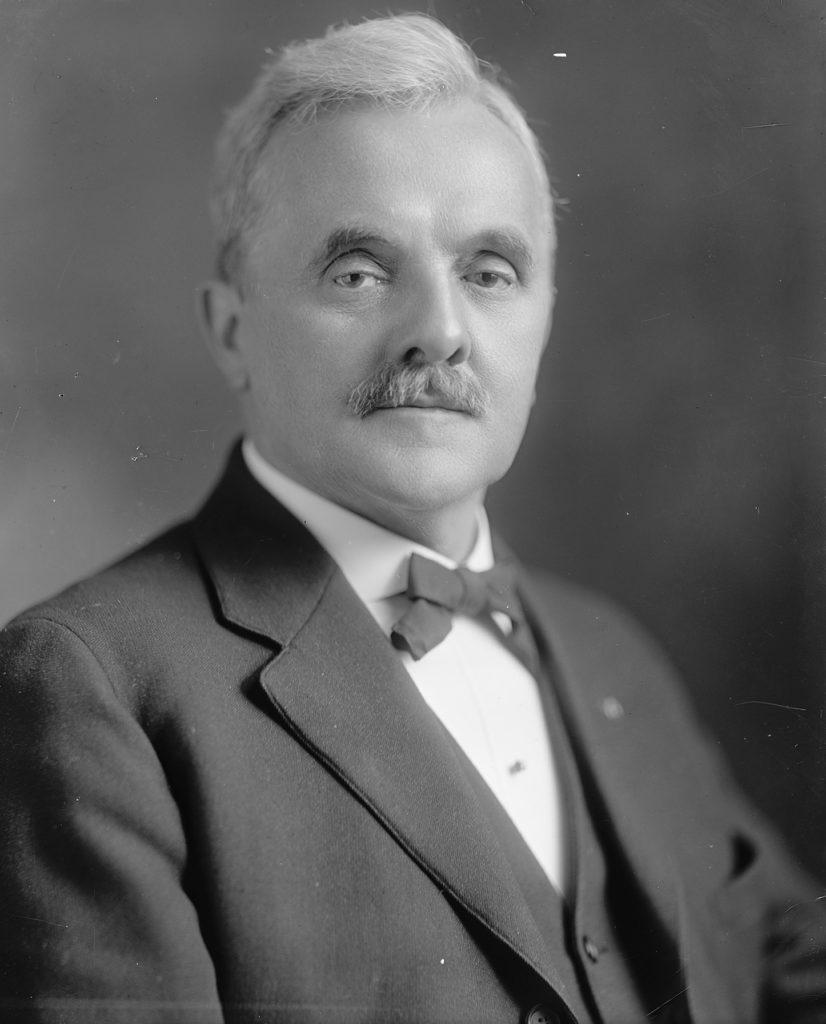
Senator George Norris, public domain
George Norris was born in 1861 in Ohio. He was the eleventh child of largely poor and uneducated parents. He was able to rise above his start in life and eventually earned a law degree and practiced as an attorney in Nebraska.
Norris became active in politics and ran as a Republican for the U.S. House of Representatives in 1902. He ended up serving five terms in the U.S. House and also five terms in the U.S. Senate. His service in Congress lasted 40 years, making him one of the longest serving elected leaders.
Norris began his career as a traditional Republican, but he was an independent thinker and aligned with the progressive movement of the early 20th century. In 1906 he voted against the railroad companies that had supported him when he voted for regulations that were favorable to his constituency. Later he would lead a campaign against the autocratic rule of the then Speaker of the House of Representatives, Joseph Gurney Cannon, who was a major stumbling block for progressive causes.
While he was a Republican, Norris frequently supported Democratic causes he felt were beneficial to the public. Perhaps he is best known for the creation of the Tennessee Valley Authority (TVA), which was especially notable because the TVA would not directly benefit his own constituents. But, it would benefit a large section of rural America that had no access to electricity, and that was important for him. The TVA legislation had been vetoed twice by Republican presidents before President Franklin Roosevelt signed it in to law.
As a man of conscience, Senator Norris opposed the entry of the U.S. into World War I because “war brings no prosperity to the great mass of common and patriotic citizens.” He was in favor of prohibition since he saw alcohol as an evil destroying the homes of Americans. He was a strong proponent of labor unions and opposed the use of court injunctions against strikes.
His stances often seemed contradictory. Norris opposed anti-lynching legislation because he thought it was unconstitutional but supported legislation against poll taxes. As an isolationist, he initially opposed the entry of the U.S. into World War II until he saw the atrocities of the Japanese in their invasion of China.
Norris was unable to win the nomination of either party in the 1942 elections and retired, returning to his hometown in Nebraska. He is generally considered to be one of the five best Senators in U.S. history. He died in 1944 at the age of 83.
Just imagine how long a person of Senator Norris’ conscience and courage would remain in office today. His 40 years of service is a hope for America that we could return to electing those who have the best interests of the American people in mind rather than the narrow agenda of one political party or the interests of their financial supporters.
* * *
“To get good government and retain it, it is necessary that a liberty-loving, educated, intelligent people should be ever watchful, to carefully guard and protect their rights and liberties.”– George Norris
This is part of our “Just Imagine” series of occasional posts, inviting you to join us in imagining positive possibilities for a citizen-centered democracy.



